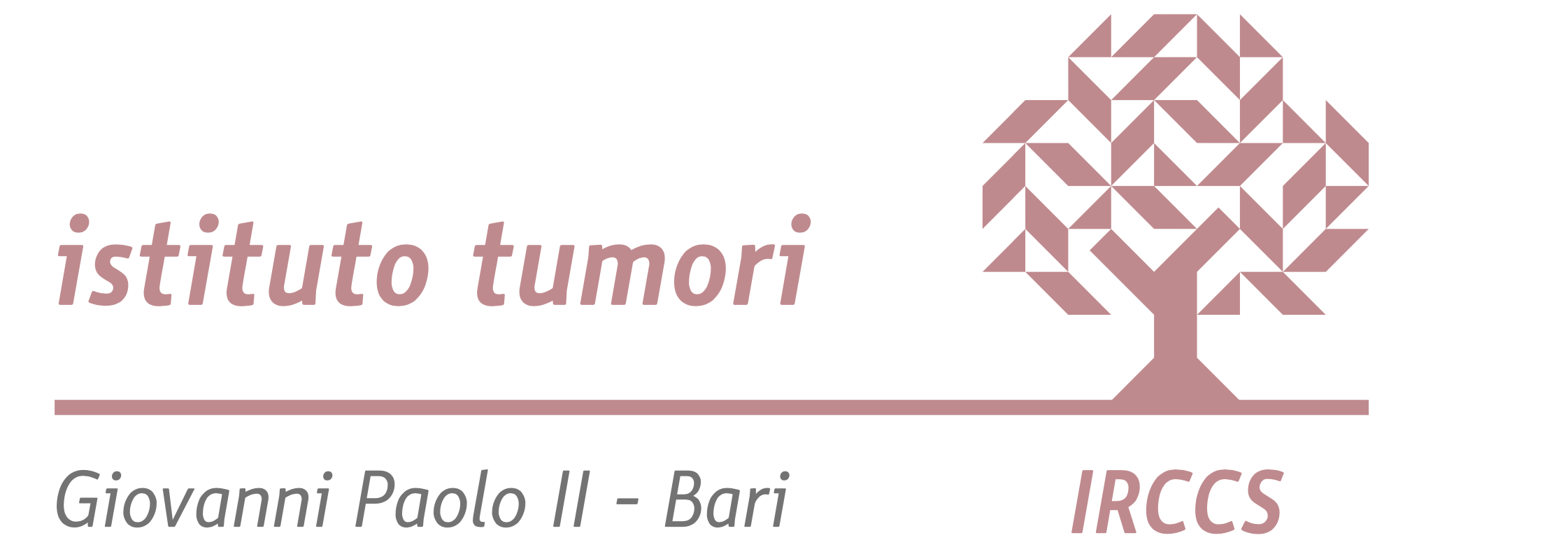IRCCS Istituto Tumori Giovanni Paolo II

The IRCCS Istituto Tumori Giovanni Paolo II in Bari (Italy) is an oncology reference center responsible for the diagnosis, treatment, and research in oncology. Integrated into the regional health service, the Institute aims to ensure comprehensive cancer care and research, coordinate diagnostic and therapeutic pathways, monitor their effectiveness, and update them as necessary.
The Institute's objectives include:
- Diagnosing and treating cancer using advanced and internationally recognized protocols.
- Conducting research to deepen the understanding of cancer biology and improve diagnosis and treatment systems.
- Providing public information on cancer-related issues and ongoing education for Institute staff.
Operating in clinical, research, and training areas, the Institute strives to achieve excellence in cancer prevention, diagnosis, treatment, and rehabilitation. Research focuses on epidemiology, etiology, neoplastic transformation and progression, and experimental therapies. Activities are guided by principles of person-centered care, effective service delivery, and efficient organizational processes. The primary strategic goal is to enhance translational research, promoting synergy between clinical and basic research to quickly transfer knowledge to patient care.
In terms of care, the Institute offers inpatient and outpatient services, including day hospital and day surgery, with a total of 162 beds across various specialized units such as general surgery (with a focus on breast and oncologic surgery), interventional oncology, plastic and reconstructive surgery, thoracic surgery, hematology, gynecologic oncology, otolaryngology, urology, anesthesia, resuscitation, and medical oncology. Outpatient services cover both examinations and treatments.
To ensure precise diagnosis and treatment, the Institute is equipped with advanced medical equipment, including echotomographs, CT scanners, pulmonary ventilators, CT angiography, 1.5T MRI, stereotactic micro biopsy apparatus (mammotome), digital mammographs, anesthesia stations, remote-controlled radiology, dermatoscopes, angiographs, tomosynthesis, linear accelerators, and a CT simulator. Additionally, it houses a biobank, a centralized antiblastic handling unit, a molecular diagnostics and pharmacogenetics laboratory and several research core facilities.
The Oncology Orientation Center (C.Or.O.) serves as the gateway for oncology patients, providing initial intake and guiding patients through the diagnostic pathway, handling all administrative procedures. Patient care is managed by multidisciplinary teams, streamlining case management, reducing care burden, and expediting diagnostic-therapeutic decisions according to PDTAs, the set of processes and procedures applying clinical guidelines in practice.